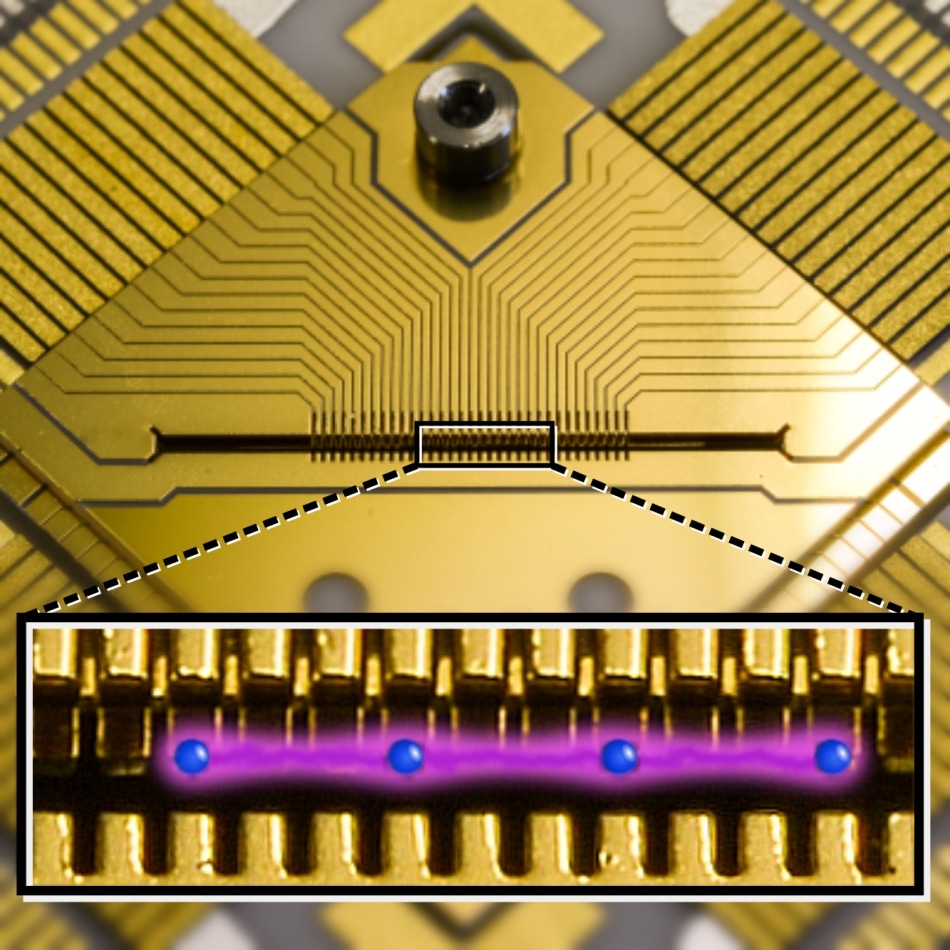Nov 7 2017
A future quantum computer, employing "quantum bits" or qubits, might be capable of solving problems which are not tractable for classical computers. Scientists are presently struggling to develop devices with more than a few qubits, with the growing challenge that the qubits mutually hinder each other’s proper operation.
Researchers headed by Professor Ferdinand Schmidt-Kaler and Dr. Ulrich Poschinger at Johannes Gutenberg University Mainz (JGU) in Germany have succeeded in showing the operation of a four-qubit register made up of atomic ions trapped in microchip trap. The ion qubits can be freely located within the trap, so that laser-driven quantum operations at high accuracy continue to be possible. The team has recognized the generation of an entangled state of the four qubits, where each of the qubits loses its distinct identity, however, the register as a whole does comprise of a well-defined state. This has been achieved by sequential operations on pairs of qubits, interweaved with ion movement operations. The resulting quantum state is carried by qubits, which are scattered across macroscopic scales of up to several millimeters.
 photo/©: Thomas Ruster, QUANTUM
photo/©: Thomas Ruster, QUANTUM
The approach for understanding a quantum computer based on moving ions in a micro-structured trap has originally been suggested by a team headed by physics Nobel Laureate David J. Wineland and has been coined “quantum CCD" for the analogy with the controlled movement of charges in the devices that underline modern cameras.
The work by Kaufmann and coworkers appeared in the much recognized global journal Physical Review Lettersand and marks a significant milestone for bringing this concept for scaling up quantum computers into the realm of feasibility.